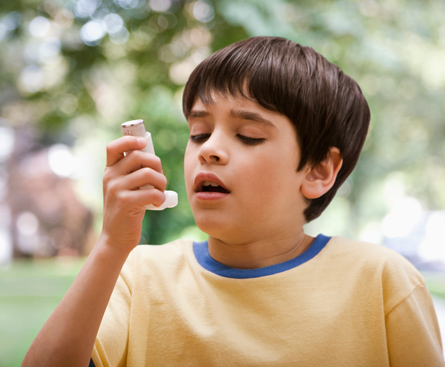As a loving parent, you want your child to be happy, healthy and a playful childhood. Even your kids wish the same, they just want to run and play, but this chronic disease can stop them from their tracks. The signs and symptoms of asthma in children can mimic other diseases, especially in toddlers and infants. So, the best way of getting treatment is by knowing what to look. So that, your children can progress with their active life without losing the fun.
A baby’s airways are so small that they can make a wheezing sound which is not really Asthma. At times, wheezing can be quite common in kids under the age of 3 to 5. Asthma is a long-term inflammation of the small breathing tubes in your child’s lungs. Your doctor will make a firm diagnosis of asthma when he/she finds a pattern of symptoms that emerges over a period of time. The doctors will also consider your medical history in order to take help with the diagnosis.
Signs and Symptoms:
There is no obvious period for a kid to develop Asthma. However, not all the children will have typical symptoms, like wheezing – a whistling noise while breathing. If you notice the following signs and symptoms then your kid might be developing Asthma.
- Coughing spell which worsens at night or with a cold, flu, or exposure to cold air
- Frequent headaches
- Dark circles under their eyes
- Tiring easily or getting winded during or after exercise or play
- Unusual drowsiness or sluggishness
- Poor feeding in infants or toddlers or poor appetite in older children
- Panting with normal activities
- Repeated respiratory infections such as bronchitis
- Weak or soft cry in infants or toddlers.
If you see your child with one or more of these symptoms then contact your doctor for an evaluation as well as diagnosis.
The Early Symptoms of Asthma Attack:
Asthma is the most chronic as well as the long duration lung disease among children. In India, 1 in every 12 kids has been diagnosed with Asthma. If your child has Asthma, then it is really important to recognize the signs and symptoms quickly and start a prompt treatment. Early treatments can reduce the severity of asthma attacks and also it can decrease the risk of permanent lung damage as well.
The early signs are often vague. Your child may have the following symptoms probably every day or just once in awhile:
- Trouble sleeping
- Anxiety, restlessness, or an uneasy feeling
- Fussiness or irritable mood
- Frequent coughing, especially at night
- Symptoms of a cold or other respiratory infection, like a runny nose, cough or a sore throat
- Tired and disinterested in playing and normal activities
Signs when Asthma is Worsened:
A severe asthma attack can be unsettling as well as scary to both you and your kid. The symptoms that your kid’s asthma is progressing into a potentially serious attack includes:
- Chest tightness – Your child can’t take a full breath or they can feel the pain
- Blue, pale or gray coloring in their face, lips or fingernails
- Difficulty speaking
- Need to sit upright
- Flared nostrils
- Sweating
- Does not recognize you or other familiar people
- Increasing restlessness and anxiety
- Persistent cough
- Rapid breathing, shortness of breath, or wheezing
Tightening of the skin and muscles in your kid’s neck, chest or stomach that makes them appear or retract to pull in when breathing.
Can It be Treated?
There is no known cure for Asthma. Plenty of children can outgrow their Asthma. You can also take care of your children by providing necessary medicines to them. If you are still unsure about your kid’s symptoms, or else if you feel that they are becoming worse even after following all the prescribed asthma action plan such as medications, then it’s time for you to bring it to notice to your child’s doctor. Your child’s medicine may need to be changed or it might be adjusted.
It is really important to consult with your child’s physician if you suspect he/she may have any symptoms of asthma. There are many effective treatments available nowadays in order to help, prevent as well as relieve those symptoms. The early the treatment the less the complications. If you see these symptoms rush to your doctor immediately in order to avoid the future impacts. Don’t waste time anymore!

